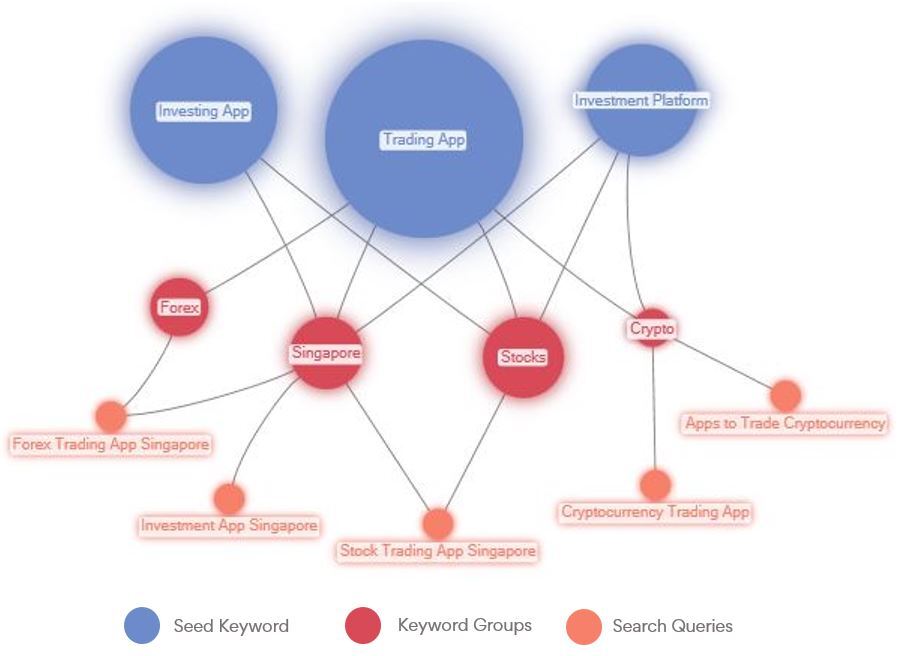Search engines have long been a marketer’s battleground. Whether competing for high search engine results page (SERP) rankings or top ad positions, search engines are a live marketplace for businesses to attract customers and generate revenue.
SEO optimisation is also typically associated with quick conversions. For B2B businesses with longer buying cycles, marketing rightfully places a higher emphasis on building and strengthening perceptions of the brand’s expertise, communicated through thought leadership programmes and content marketing activities. Yet even with this strategy in mind, B2B businesses can benefit from careful SEO research.
Typically, developing a content strategy entails multiple stages: defining your objectives, target audience, channels and the type of content to produce. When it comes to defining your content themes, for instance, you can conduct a content audit, analysing your own content’s search performance and comparing it to that of your competitors.
But here I want to focus on how SEO research can enhance your content planning, in two crucial areas:
1. Thematic ideation: Organic keyword research presents an opportunity to understand the demand (search volume) for a given topic, as well as the interest in underlying sub-themes around it. Start your research by defining a set of “seed keywords” i.e., those relevant to your business offerings and services. For example, a fintech investment platform could use “investing app” or “investment platforms” as seed keywords.
To make your research more efficient, make sure you use the following:
i. Search filters: To narrow down your search results, I recommend using a “phrase match” or “exact match” filter to avoid drowning in irrelevant keyword data. This helps omit keyword combinations that are likely to be of no use.
ii. Keyword groups: Depending on your keyword tool of choice, most tools now automatically group the data based on common words. For example, all keywords including “risk” will be grouped together, another group might include “applications”. This can help you narrow down your search and get the most out of your data.
2. Competitive analysis: Conducting competitor analysis is marketing best practice and beneficial in many ways. Any such analysis should include comparative assessments of competitors’ digital footprints and organic performance. For this type of analysis, two useful areas of SEO focus should be:
i. Organic rankings: Which keywords are they ranking for? Are they mostly branded keywords (products, locations, team members) or unbranded? How much organic traffic are they getting from their keywords?
ii. Ranking pages: Every organic keyword is linked to and directs to a webpage. If a page ranks highly for one of your target keywords, it is likely because the search engine algorithm has determined that it provides the right answer for the search query. Therefore, it is helpful to analyse the page, to understand what makes it a good match. For example, what format is used? Some topics are easier to present visually, while some require longer-form, in-depth text.
-----
Panning for marketing gold
It is time to analyse the data and explore what it tells you about optimising your content strategy. To make this job easier, there are useful ways to visualise and segment your SEO data to help extract insights
The first is of course to segment your data, whether by themes, geographic location or even content formats. Doing so can help you develop segment-specific strategies for personalised and targeted content plans.
The second is to visualise the results. Nothing is more tedious than eyeballing rows of data and hoping insights leap out. For thematic research, word clouds are a quick and easy option, clearly demonstrating intensity of demand (search volume) for key topics (as in the example below). For a more granular view, social network analysis tools such as Gephi or NodeXL visualise connections and identify shared sub-topics between the different keyword groups.
Sample keyword analysis. Graphed with NodeXL

Even with changing algorithms, monetisation efforts, regulations and privacy laws, Google will likely remain the dominant player in the market, and marketers must continue to adapt and utilise and leverage the available tools and data for their success.
While SEO research typically plays a tactical role for performance marketers, influencing their day-to-day actions, optimising campaigns, and content assets for a higher conversion rate (CRO), B2B businesses should adopt a longer-term strategic viewpoint, by evaluating and incorporating SEO data in their content strategy development process. Contact me directly if you need help with how to get the best out of SEO for your campaign planning.
Latest articles
World-class communications strategy and execution
Contact us to get started